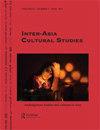印度数字化:印度的监控、平台化和数字化劳动力
IF 0.4
4区 社会学
Q4 ANTHROPOLOGY
引用次数: 0
摘要
摘要本文对印度政府于2015年推出的旗舰计划“数字印度”的基本原理进行了批判性的探讨。它认为,该计划有助于国家和企业部门稳步建立一个收集用户行为数据的监控资本主义系统。本文通过观察21世纪第二个十年平台经济的兴起、2016年的非货币化以及随后印度日常生活中数字化力量的崛起来分析这些问题。这篇文章质疑了我们与技术的关系,并表明印度的数字化是国家和企业部门的一个项目,旨在通过使用行为数据来控制人口,当一个人作为数字工作者参与任何平台时,都会提取这些数据。此外,文章强调了日常生活数字化中出现的人类和非人类机构之间的复杂关系,以及这种关系如何通过国家和企业行为者建立的控制机制,奴役人民,剥夺人民的自由和独立自我。本文章由计算机程序翻译,如有差异,请以英文原文为准。
India digitalized: surveillance, platformization, and digital labour in India
ABSTRACT This article critically engages with the rationale of Digital India, a flagship programme of the Government of India, launched in 2015. It argues that this programme has been instrumental for the state and the corporate sector in order to steadily create a system of surveillance capitalism which collects the users’ behavioural data. The article analyses these problems by looking at the rise of platform economy throughout the second decade of twenty-first century, the demonetization of 2016 and the subsequent rise of power of digitality in the everyday life in India. The article problematizes our relationship with technology and demonstrates that India's digitalization is a project by the state and the corporate sector aimed at controlling the population by using the behavioural data, which is extracted when a person engages with any platform as a digital labourer. Moreover, the article emphasizes a complex relationship between the human and non-human agencies that emerges out of the digitalization of everyday life, and how this relationship, through the control mechanisms put into place by the state and corporate actors, enslaves the population and deprives it of liberty and independent selfhood.
求助全文
通过发布文献求助,成功后即可免费获取论文全文。
去求助
来源期刊

Inter-Asia Cultural Studies
Multiple-
CiteScore
0.90
自引率
20.00%
发文量
22
期刊介绍:
The cultural question is among the most important yet difficult subjects facing inter-Asia today. Throughout the 20th century, worldwide competition over capital, colonial history, and the Cold War has jeopardized interactions among cultures. Globalization of technology, regionalization of economy and the end of the Cold War have opened up a unique opportunity for cultural exchanges to take place. In response to global cultural changes, cultural studies has emerged internationally as an energetic field of scholarship. Inter-Asia Cultural Studies gives a long overdue voice, throughout the global intellectual community, to those concerned with inter-Asia processes.
 求助内容:
求助内容: 应助结果提醒方式:
应助结果提醒方式:


